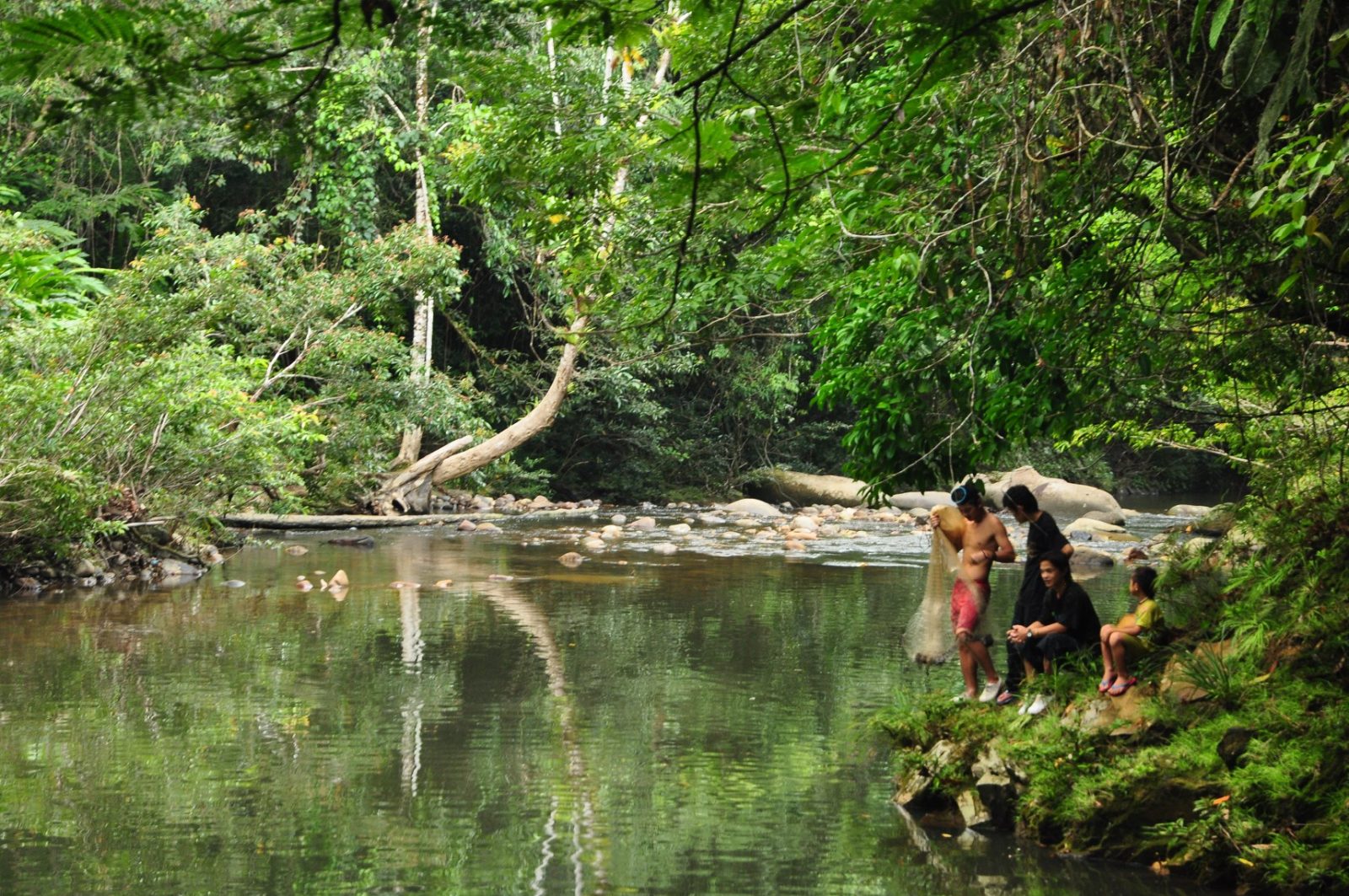
Borneo Penan Tribe
PENAN TRIBE
Adventure Alternative runs several trips to the Penan tribe in northern Sarawak and promotes it as a responsible tourism destination, while helping to fund their reforestation program. Adventure Alternative supports the Moving Mountains Trust through the fundraising and volunteers it sends to Borneo. Although not all of our itineraries visit the region, it is possible to add on a trip to the Penan communities to any booking.
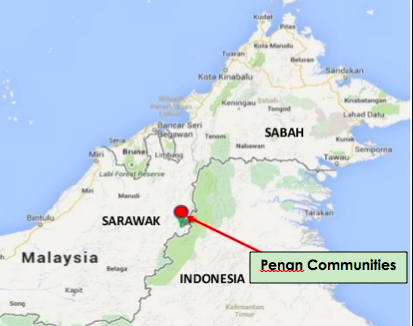
HISTORY OF THE PENAN TRIBE
The indigenous Penan people from the upper Ulu Baram River have experienced significant changes in their physical and cultural landscapes over the past thirty years. In less than one generation, this once remote area has undergone high levels of logging which has threatened sustainable levels of wildlife and has made it increasingly difficult for the Penan to gather food, materials and valuable medicinal products from their land. Climate change, deforestation and land conversion has also increased vulnerability to forest fires, placing these valuable forests under incredible risk, they remain among the poorest, under-served and under-represented people in Malaysia.
Over the past 15 years, the lack of job opportunities in these villages has led to the migration of men and young people to cities, leaving women, children and the elderly behind without viable incomes, resources, or the training needed to promote economic growth in the area.
MALAY-PENAN DIALECT LANGUAGE
Here are some words and phrases translated from English into the Malay language to help you on your trip to visit the Penan in Sarawak. These words and phrases were put together with one of the Penan guides we work with from Long Kerong and a dictionary he had, see here for more information about the dictionary. There are two main groups of Penan; Eastern Penan and Western Penan. Our trips visit the Eastern Penan in the Upper Baram region of Sarawak. There are some variations in the language between the Eastern and Western Penan; these phrases are taken from the Eastern Penan group.
A particularly fascinating aspect of the Penan language is how the language has developed with changes in the Penan culture. This is difficult to get across with words and phrases written down, but something that you can learn while you are out in Borneo!
| English | Penan |
| Greetings | |
| Hello | Hello. You can say “Ineu rengah” which literally translates as “how are you”, but everyone knows what hello means and often say this to each other |
| Goodbye | Ngelajam or bye |
| Good morning | Jian ngivum |
| Good evening | Jian maram |
| My name is… | Ngaran ke’… |
| I am … years old | Umun ke’ … taun |
| I am from …. | Akeu jin… |
| Daily Communication | |
| Yes | Oo’ |
| No | Bek |
| Thank you | Jian kenin. This translates literally as “good heart”. Jian = good; kenin = heart |
| You’re welcome, as a response to thank you | Kua kua |
| Please | To long |
| Sorry | Menyat jian |
| I do not understand | Akeu bek jam ha’ ko’ |
| I don’t know | Be akeu jam (jam pronounced “jarm”) |
| To sleep | Juk pegen |
| Help me | Nolong |
| Personal Pronouns | |
| I | Akeu (pronounced akow) |
| You (singular) | Ka au |
| We – if the person you are talking to is in your group | Uleu |
| We – if the person you are talking to is not in your group | Amee |
| You (plural) | Ka ah |
| They | Irah |
| My | Akee |
| Your | Akor |
| Food & Drink | Ka’an & Mesep |
| Eat | Kuman |
| I am hungry | Akeu La’au |
| I am thirsty | Akeu juk mesep |
| Breakfast | Kuman dau ngivum – this translates literally as “eat day morning” |
| Lunch | Kuman dau pejek |
| Dinner | Kuman dau tahup |
| Water | Ba |
| Boiled water | Ba matai – This translates literally as “water dead” |
| I do not eat… | Akeu bek kuman… |
| I do not eat meat | Akeu bek kuman sin kan |
| Rice (cooked) | Lubi |
| Rice (uncooked) | Parai |
| Meat | Sin |
| Food that you eat with rice | Ba an |
| Can I have…? | Omok akeu…? (omok = can) |
| Plate | Bigan |
| Knife | Nahat |
| Spoon/fork | Tarok |
| I am full | Beso |
| Questions | |
| How? | Kineu? |
| Where? | Kemah? |
| What? | Ineu? |
| Who? | Se’? |
| Why? | Kineu? |
| When? | Hun? |
| What is this? | Ineu itu |
| How far? | Koh keju? |
| Which way? | Mah Jalan? |
| What is the time? | Pukun kuraa itu? (Time = Pukun) |
| What animal sound is that? | Ka’an ineu iteu? |
| What is that sound? | Ha ineu iteu? |
| Where can I wash? | Semah jalan mero? |
| Other | |
| Hot | Pana |
| Cold | Genin |
| Beautiful | Jian na’an |
| There | Inah |
| This | Iteu |
| That | Itai |
| Left | Sa kabeng |
| Right | Sa’a na’au |
| Walk | Lakau |
| Short break/stop | Posot |
| Blister | Lekup |
| Go | Lakau |
| I go to Long Kerong | Akeu Lakau Long Kerong |
| Leave | Perleka |
| Return | Tuai kepeh |
| Have | Pu un |
| Buy | Melih (pronounced mer lee) |
| Come | Tuay (pronounced too i) |
| Like/want/prefer | Kelo (pronounced ke lor) |
| Happy | Murung |
| Smile/laugh | Mala |
| Enjoy | Ngida |
| Stop | Mao |
| Much | Pina |
| House | Lamin |
| Longhouse | Batang Lamin |
| Family | Panak |
| Bath/bathe | Mero |
| Toilet | Jaban |
| Live | Mokor |
| Village | Lebor |
| Headman | Tua’kapung |
| Religion | Ugama |
| Jungle | |
| River | Ba’ (all the villages called Ba…. are located on a river; e.g. Ba Lai) |
| River mouth | Long (all the villages called Long… are located on a river, near a river mouth; e.g. Long Kerong, Long Sepigen) |
| Boat | Alut |
| Animal | Ka’an (this is the same word as for “food”) |
| Fishing | Ngelesa |
| Blow pipe | Kaliput |
| Dart | Dahad |
| Poison tree | Tajem – this is the name of the poison tree |
| Flower | Bunga |
| Snake | Torok |
| Logging | Kereja batang/kereja kayeu |
| Tree | Kayeu |
| Rattan | Uai |
| Rain | Ta |
| Hammock | Sevitut |
| Fire | Luten |
| Wood | Kayeu |
| Fish | Seluang |
| Bird | Juhid |
| Days | Day = Dau |
| Monday | Dau jah |
| Tuesday | Dau duah |
| Wednesday | Dau teleu |
| Thursday | Dau pat |
| Friday | Dau lemah |
| Saturday | Dau nem |
| Sunday | Dau migu |
| Day | Dau |
| Night | Marem |
| Morning | Ngivun |
| Midday | Dau ja’au (this also means holiday) |
| Afternoon | Dau kuba |
| Evening | Dau tahup |
| Now | Hun itu |
| Yesterday | Malem |
| Today | Dau itu |
| Tomorrow | Sagam |
| Numbers | |
| 1 | Jah |
| 2 | Dua |
| 3 | Teleu |
| 4 | Pat |
| 5 | Lema |
| 6 | Nem |
| 7 | Tuju |
| 8 | Ayah |
| 9 | Pien |
| 10 | Polo |
| 11 | Jah polo jah |
| 12 | Jah polo dua |
| 13 | Jah polo teleu |
| 14 | Jah polo pat |
| 15 | Jah polo lema |
| 16 | Jah polo nem |
| 17 | Jah polo tuju |
| 18 | Jah polo ayah |
| 19 | Jah polo pien |
| 20 | Dua polo |
Book Your Adventure of a Lifetime Now
Discover our trips to other Countries
Adventure Alternative Articles
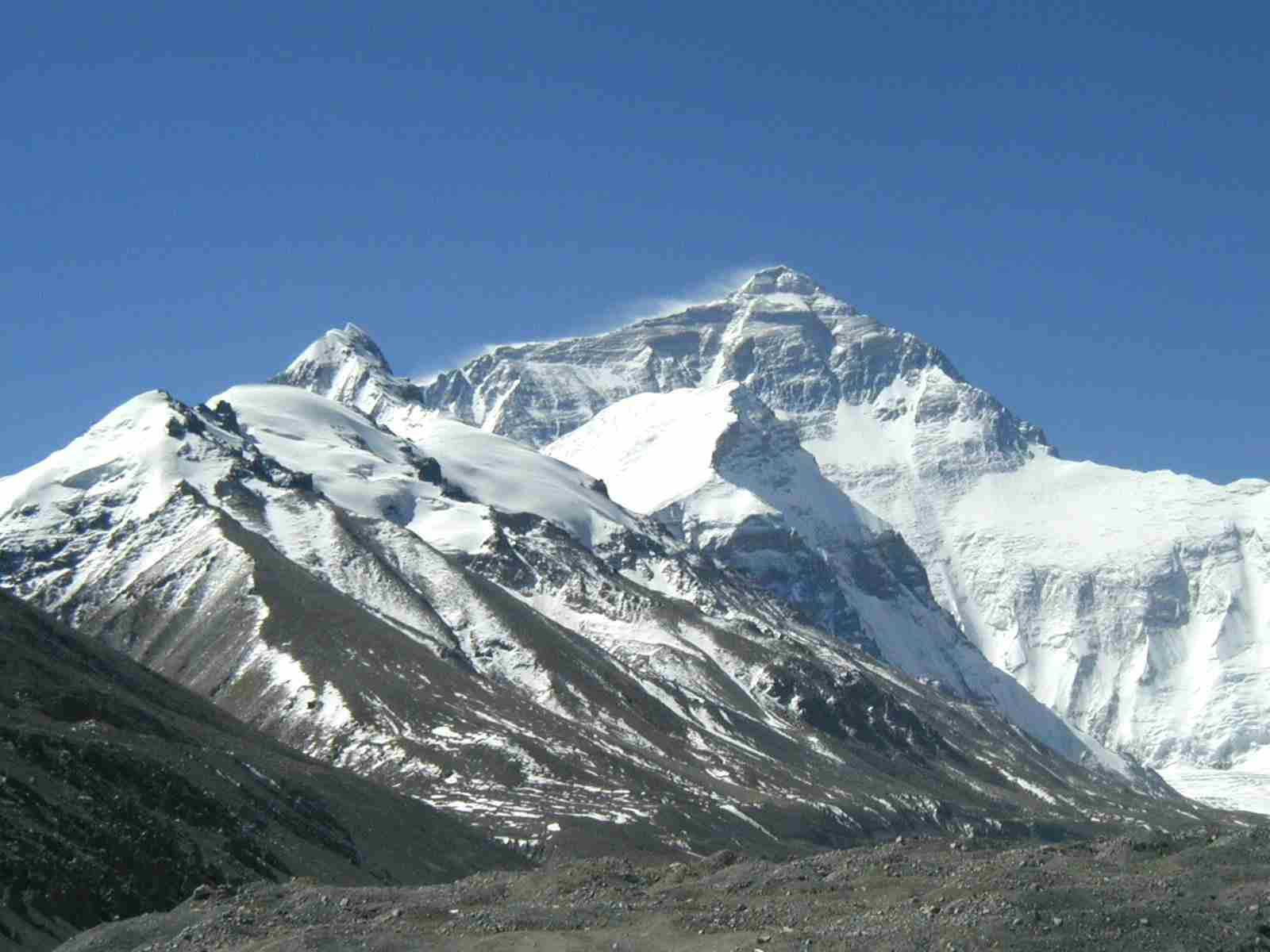
12 MONTHS, 12 MOUNTAINS
Climbing Calendar Ready for World Mountain Day In celebration of World Mountain Day, we've created a calendar for the year to make it easy for...
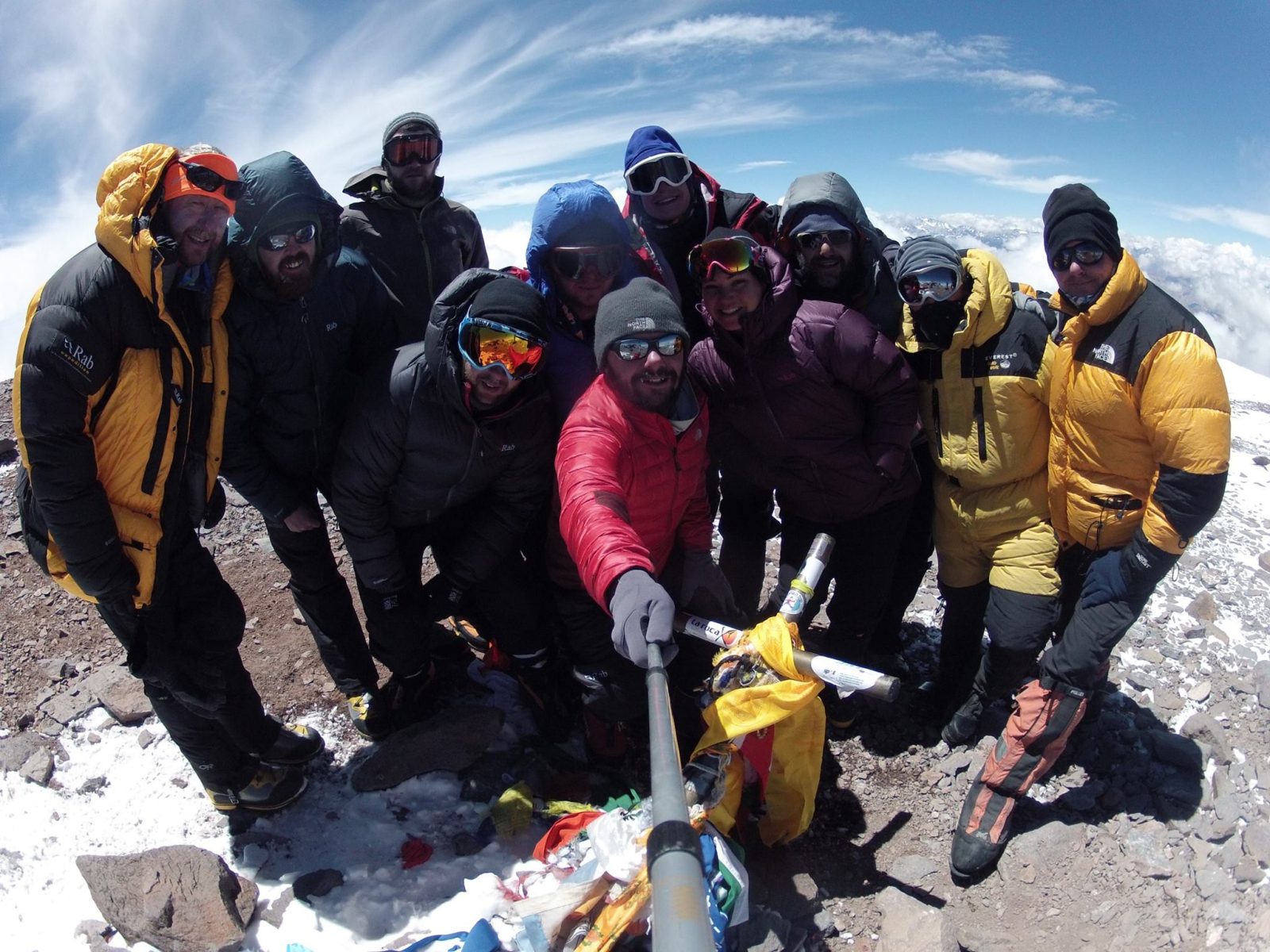
Mount Aconcagua Trip Review
January 2016 This year we had a team of twelve clients from four different countries – Iran, Ireland, England, South Africa and Argentina –...
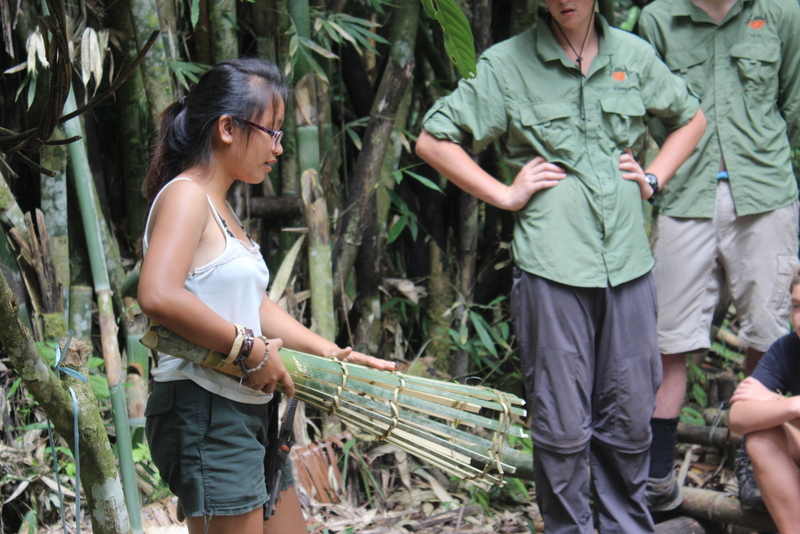
Alcey’s Survival Skills Course at Lupa Masa Jungle Camp
SURVIVAL SKILLS COURSE AT LUPA MASA JUNGLE CAMP | ADVENTURE ALTERNATIVE In celebration of International Rural Women’s Day, we’re talking...